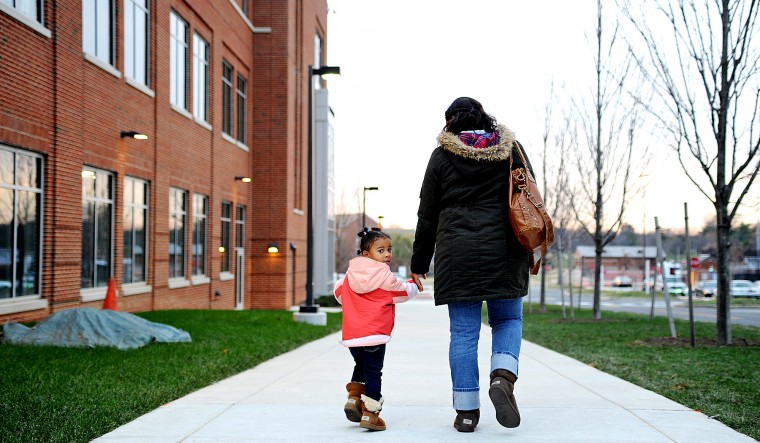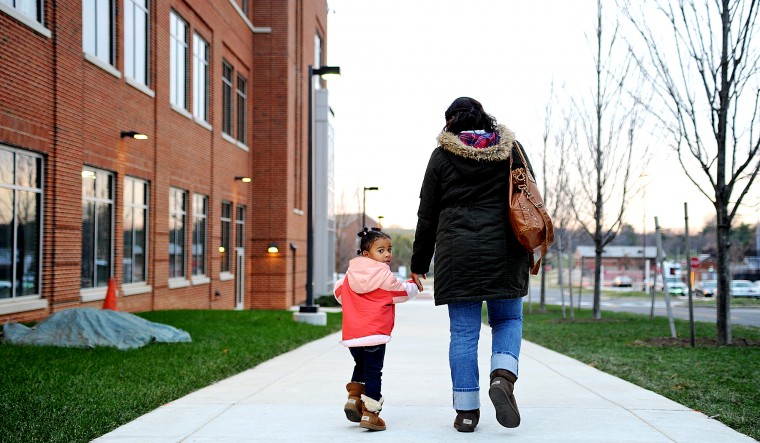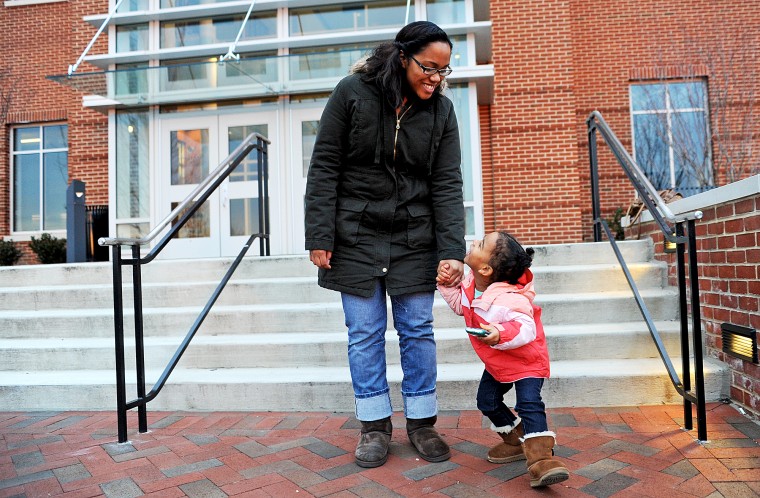After hours of lectures and studying for exams, the typical student might come home to a sloppy dorm, hang out with friends or simply relax.
But what for most students is the end of the day, for junior journalism major Erica Mink it’s only the beginning. Mink comes home every day to Alisha, her 2-year-old daughter.
“I have to go home and be really patient,” Mink said. “I don’t get a lot of work done. When I come home, I’m a whole different person.”
Mink, 20, had her child before she graduated high school and now balances motherhood, a part-time job and a heavy course load.
She went to school part time for one semester and still tries to schedule her classes with at least one free day a week so she can spend extra time at home with her daughter.
“I have to keep in mind when she’s in day care,” she said. “I definitely have to budget my time well.”
The job may be overwhelming to some, but Mink said she can handle her hectic schedule.
“I’m a pretty good multitasker,” Mink said.
Unfortunately, she can’t plan for everything, she said. One night before a major exam, her daughter became ill. Instead of studying for her test, she had to take care of her child.
“When you have a kid, you can’t study like everyone else can,” she said. “Obviously, school is your first priority, but your kids are also your first priority.”
Alli Matson, the university’s sexual health education programs coordinator, said undergraduate students with children run into these issues often.
While the University Health Center cannot give out absence notes to students with family emergencies, she said, students can talk to professors about rescheduling their exams. Pregnant students in particular are usually excused by their professors if they expect to go into labor around exam time, Matson added.
“I’ve worked with students in that position,” Matson said. “Generally, for the most part [professors are] pretty understanding. Depending on when this happens, if it’s the middle of the semester, you’re going to be expected at some point to come back for the semester.”
Matson added that, unlike their peers, undergraduate students cannot live on the campus with their children. Student parents can live near the campus in private apartments and houses, but none is as close as the Graduate Gardens and Graduate Hills apartments, which only accepts graduate students and their families.
“I think at the end of the day it’s less so a conscious choice,” said Mike Glowacki, the Resident Life Department’s assistant to the director. “It’s the incredible demand for housing on campus. We have populations that are underserved. We start with graduate students that are underserved. There’s never been a real movement to acquire the housing or the land necessary to create family-style housing.”
Matson said the health center does not keep statistics of how many undergraduate students are pregnant or have children.
However, none of the students she has worked with has ever needed to drop out of school because of added responsibilities; having a strong support group seems to be a crucial factor in the decision to stay in school, Matson said.
Mink said it was her family’s support that made the difference. During her first semester, she went to school part-time, and her mother helped take care of her daughter.
“I don’t think I’d be able to manage without my family being so supportive,” she said.
Support isn’t everything, Mink added. She said undergraduate mothers need to have the right attitude to succeed at fulfilling all of their responsibilities.
“You definitely have to have a good head on your shoulders,” Mink said. “You have to be motivated to get up every single morning and still be able to do your work at the same time.”
korkut at umdbk dot com
Junior journalism major Erica Mink balances a full student schedule with caring for her toddler, Alisha.





